The Food Capitals Online Meetings: staying connected throughout the year
In order to stay connected, The Food Capitals offers special virtual meetings called "Monthly Treats" and "Digital Food Talks".
These 60-minute online sessions allow the members to stay connected on a regular basis. They offer members all year long the possibility to exchange with peers on specific topics: an internal discussion, a best practice, an expert, a project proposal, a partner... different treats every time!
Recordings of the Monthly Treats and #DigitalFoodTalks are available on replay below (access for members only).
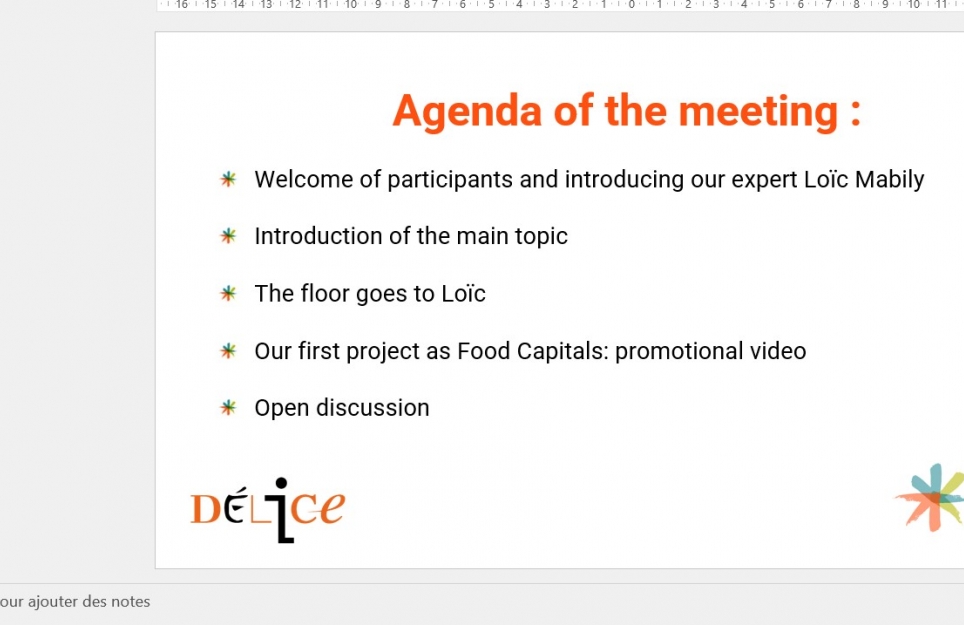
Representatives from 18 cities across three continents connected for this #Digital Food Talk on September 12th, 2024 to answer the question “How to create a short, catchy, and impactful video to effectively promote a food destination?” , with an expert coming from the audiovisual world :
- Loic Mabily from French agency "CheeseNan".
Loïc Mabily navigates between cinema production and radio broadcasts, fiction and documentary.
Co-founder of Cheese Naan agency, he draws on 12 years' experience in audiovisual production to create impactful, positive brand media, blending words, sounds and images. With a collaborative approach, he designs and produces vibrant, meaningful and aesthetically pleasing content, always focusing on human experience and emotional narratives.
He already worked with our Network for the Cities at the Table and for the Future Kitchen Projects.
Further to this, the Food Capitals by Délice HQ also gave the most important higlhights on the new project Food Capitals Manifesto and city Promotion videos, to be published on Social Media by the end of the year!

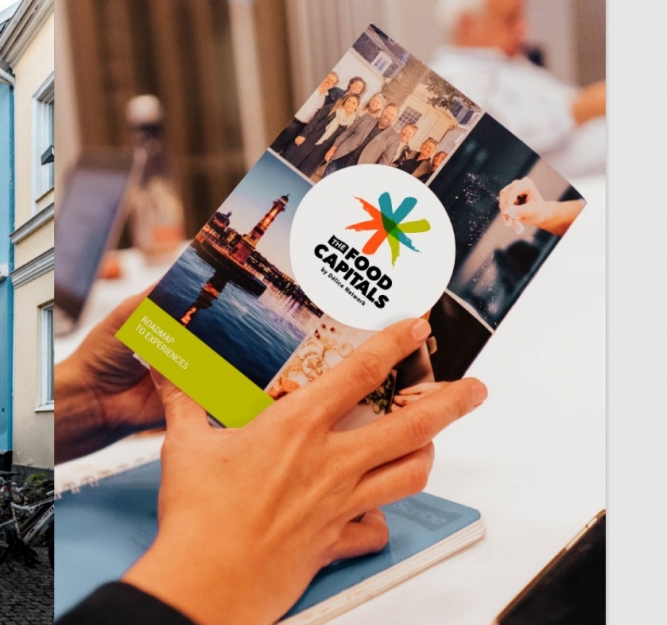
Representatives from 11 cities across three continents connected for this #Digital Food Talk on June 13th, 2024.
The primary focus of the meeting was to discuss and brainstorm the implementation of the new "Food Capitals" brand, officially launched at the Merida AGM.
Attendees addressed key questions about the brand's name, logo usage, communication guidelines, trademark protection, social media strategies...
The session began with a quick report on the recent event in Merida, followed by an open forum where members shared their insights and feedback on the new brand in order to ensure a clear and regulated use of the "Food Capitals" brand across all member cities.
This discussion represented a useful contribution to a transition foreseen for September. And the engagement and contributions from all participants highlighted once again the strength of the network's collective intelligence promoting food culture worldwide.
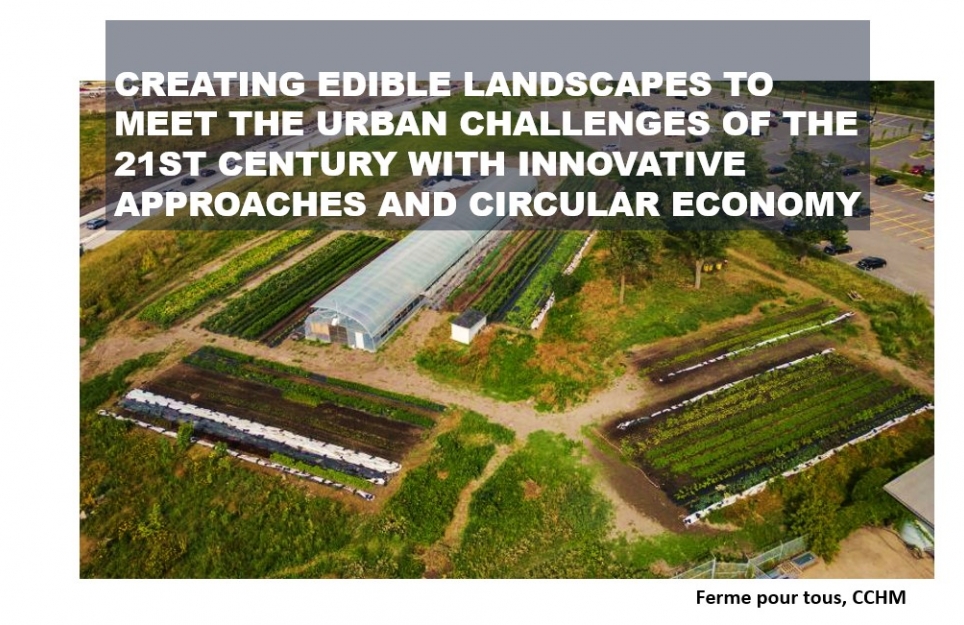
The topic of Délice Network first virtual meeting of 2024 was “The nourishing city: Urban Farming Projects feeding Communities”
During this interesting gathering will explore visionary urban farming initiatives, from rooftop gardens to hydroponic farms and urban gardening, showcasing how such projects can provide food for restaurants, shops, markets, and nourish citizens&visitors.
Our guest experts:
Eric Duchemin, Laboratoire Agriculture Urbaine, Montréal
Pauline Baril, Le Passe Jardins, Lyon
Costanza Bernardi and Nicholas Di Piazza, Grow Up Urban Farms, Torino
We also had the chance to meet and greet our two new member cities: Tartu and San Antonio!

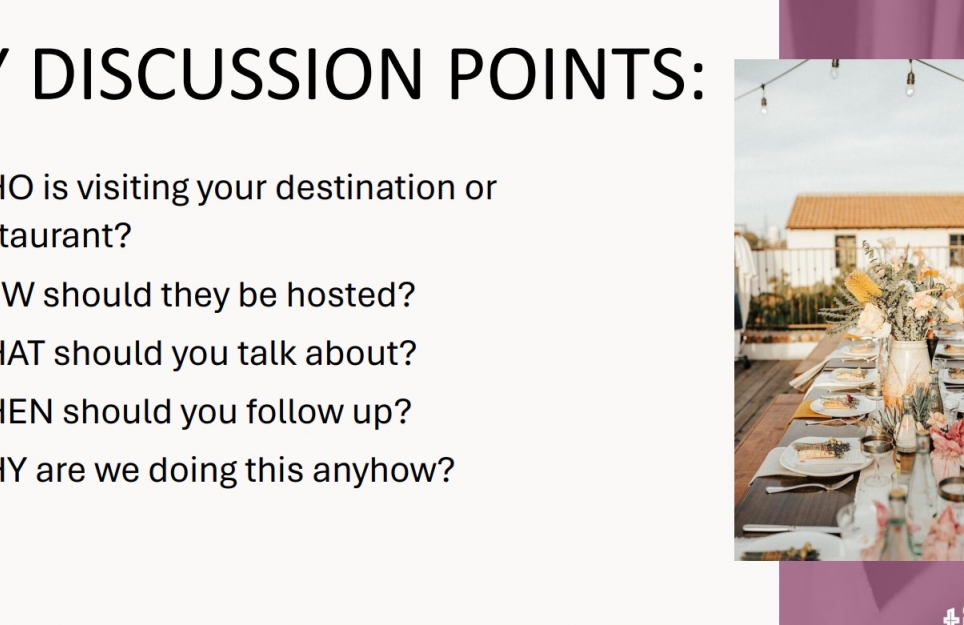
“How to pitch your food story to journalists, and how to welcome them in your restaurants?”
During this Digital Food talk we explored how you pitch your food story to trade/media publications, and especially how you explain to Chefs and restaurant owners what they should do on their side to help promote the local food scene.
Journalists are not interested in talking only to the President or VP of Marketing of a tourism board. Above all, they want to go to the field, and meet Chefs, local producers, etc.
So, when you take a journalist to a restaurant or any other food venue, it is very important to ask the Chef/producer/food professional not only to serve a delicious meal or present the technical part of their job, but also to sit down and spend time with the journalist. But often, these individuals don’t know how and what to say to their guests journalists to be catchy and relevant and well promote the destination.
For doing this properly, the Chef/producer/food professional needs to be trained on some talking points about the destination + he/she needs to have a clear and short brief of what that journalist is interested in or passionate about.
Our Expert:
Mary Rittmann, Vice President of Communications & Tourism, Visit Tucson
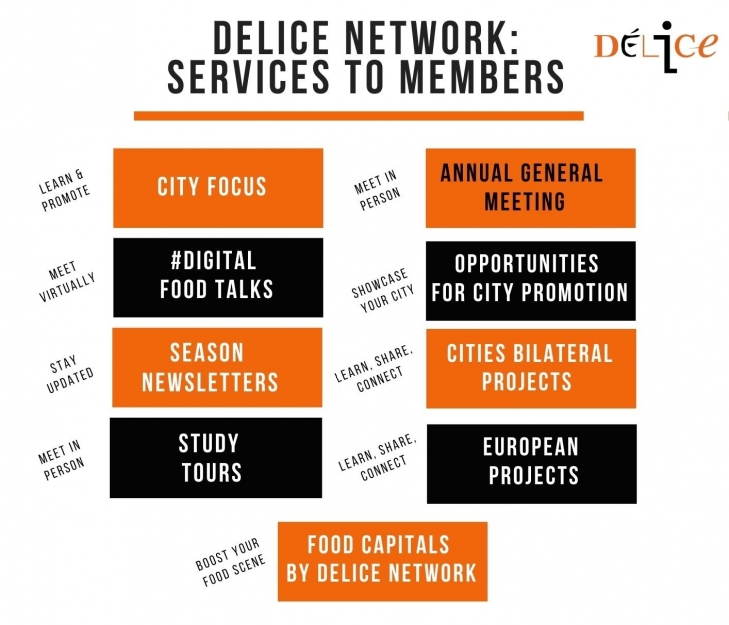
In 2023, Délice Network faced challenges, yet its determination to continue reinforcing and developing city exchanges remains stronger than ever.
Despite ongoing projects and collaborations among members, all Délice cities hadn't gathered since the General Annual Meeting in Malmö. It was time for them to reconnect!
For this reason, Délice Network HQ and its President invited all members to join a virtual catch-up meeting over a cup of coffee.
This digital meeting brought together 22 people from 12 cities worldwide (Birmingham, Brussels, Busan, Chicago, Gaziantep, Izmir, Merida, Montréal, Puebla, Stavanger, Tucson, Wroclaw) for
- updates on the network's current situation
- presentation of the services foreseen for members in 2024
- a dive into future events (physical and virtual)
- a precious opportunity for members to see each other and exchange ideas about the Network's future

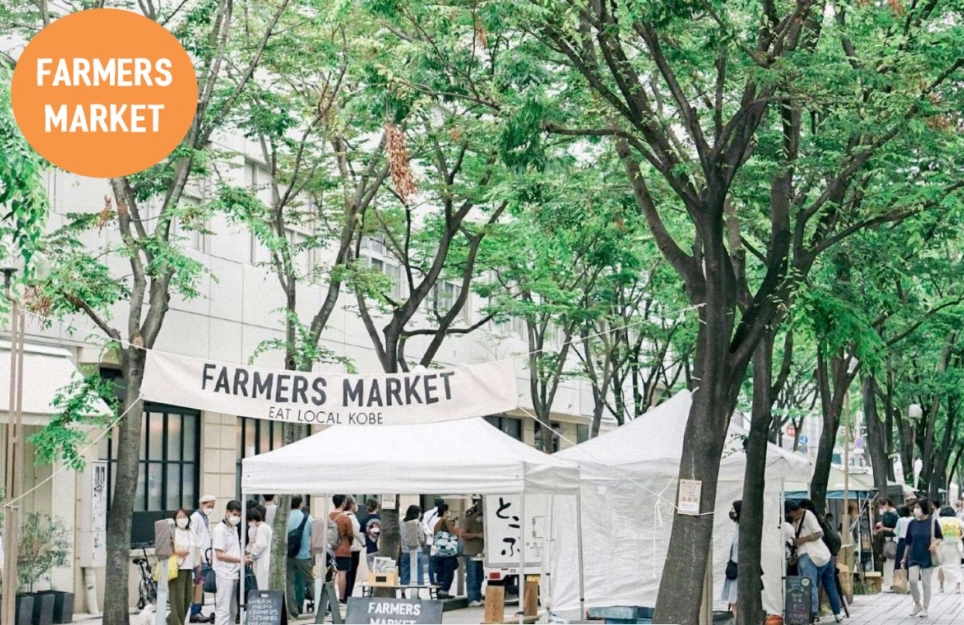
EAT LOCAL KOBE is a platform that enables the public and private sectors to collaborate in order to promote the local consumption of agricultural and marine products in Kobe. Under the slogan “Think Global, Eat Local” their aims are the following:
- Promoting agriculture and fisheries in Kobe.
- Ensuring that the food environment in Kobe remains safe, environmentally friendly, and reasonably priced.
- Creating a place for exchange through food, not only for local farmers, fishermen, processors, restaurants, and consumers, but also for people of different ages, nationalities, and professions, and to foster a community where they can grow together.
This Monthly Treat provided insight into how cities tackle environmental and social problems that are unique to their regions and how they adapt by coming up with solutions. Guest speaker:
Hiroaki Koizumi – Representative of Eat Local Kobe
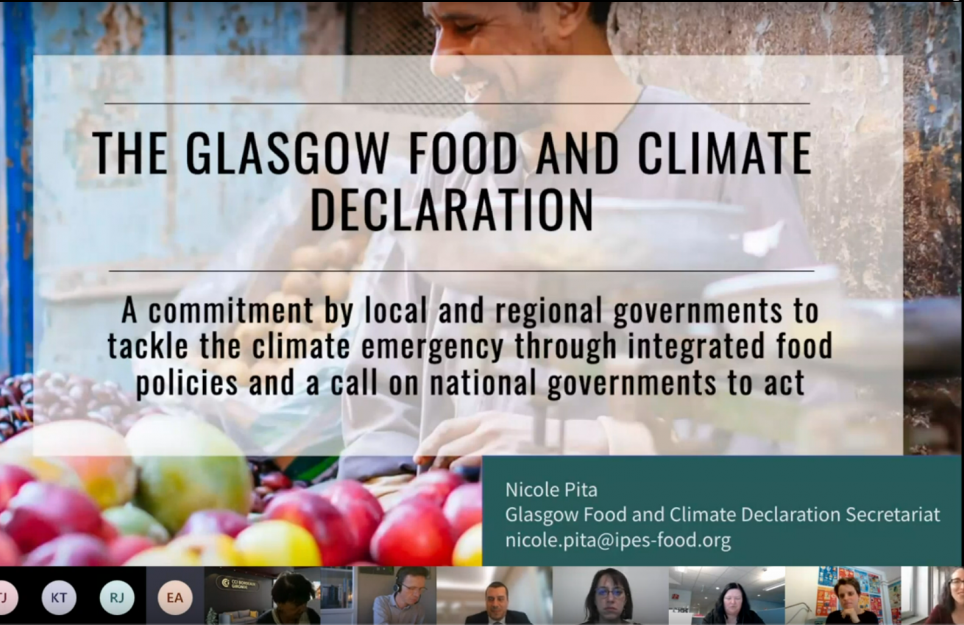
In 2021, Délice Network became one of the signatory partners of the Glasgow Food & Climate Declaration, set up by IPES-Food and Nourish Scotland in preparation for the CoP26 in Glasgow.
This Declaration intends to raise awareness of the global leaders on three strong messages:
- The climate cost of the current food system and the need to place food at the top of the agenda of international climate negotiations
- The importance of aligning food policies across policy areas and between different levels of government
- The excellent work already developed within some cities to rethink ways of producing, distributing, transforming, and serving food.
This Monthly Treat session will help you learn more with:
- Nicole PITA, Project Manager from the Glasgow Declaration secretariat.
- Representatives of Délice cities who have already signed the Declaration.

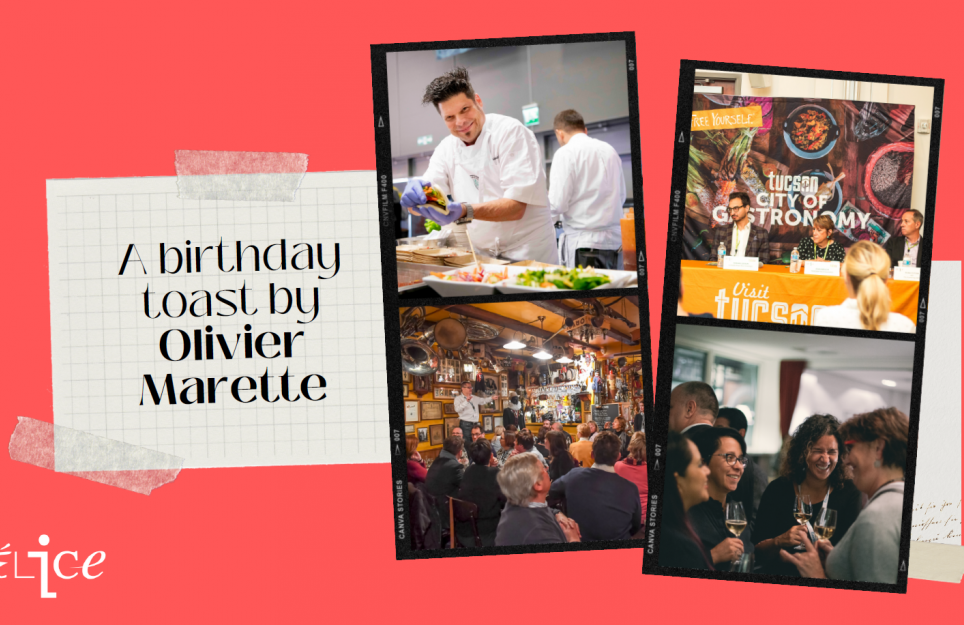
In 2007, Délice Network was launched with the idea that food deserved a larger space in the discussions at the city level. 15 years later, the topic has become highly strategic for many global cities.
Our Network has evolved throughout the years, adapting to the ways cities have approached food: a powerful marketing tool, a trigger for economic development, and an opportunity for a more sustainable and livable city. The Network has gained new members yearly, all sharing the same values and commitment to Food & Gastronomy.
On the menu of this Monthly Treat:
- A Birthday Toast by Olivier MARETTE, President of Délice Network
- A round table to present your most memorable Délice project or Best Practice from a partner city
- An update on what to expect in 2022
- An informal get-together among partners & friends to catch up!
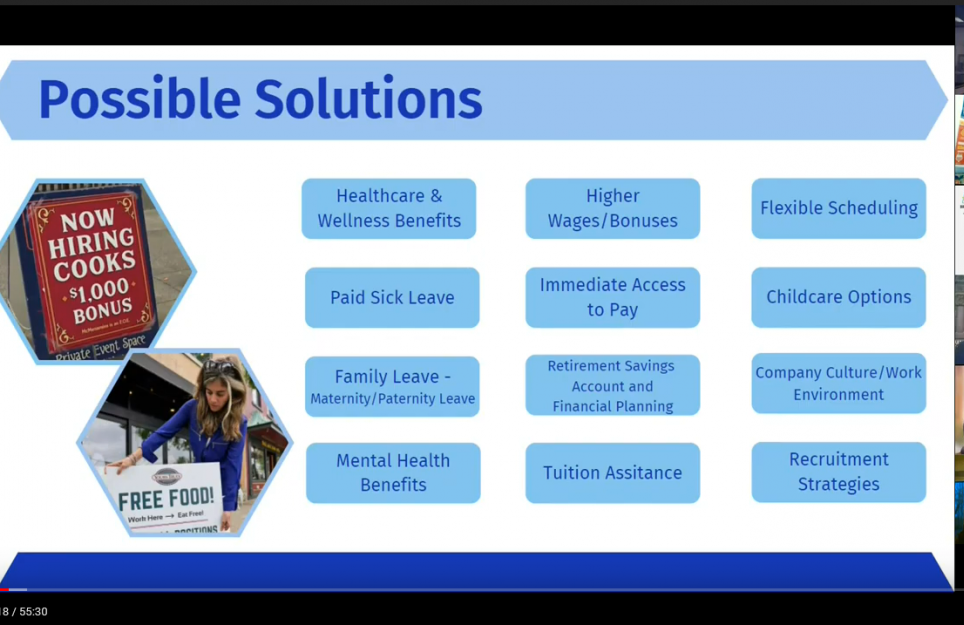
After COVID-19 forced restaurants, hotels, and bars to shut down last year, the hospitality sector faces an unprecedented workers shortage worldwide. The industry's instability has led to higher turnover rates over the years. Low wages, dependence on tips, long hours, and frequent layoffs made the lives of restaurant employees difficult even before the pandemic. While the restaurant industry is beginning to rebound after months of shut down due to the pandemic, the sector is now suffering from the adverse effects of the labor shortage.
Looking at the example of Chicago, we tried during this Déce Monthly Treat, to understand the origin of the situation and the impact on the industry. Two speakers gave their perspectives on the reasons for the labor shortage:
• Mary Kay BONOMA, Vice-President of Illinois Restaurant Association
• Meghan VIETTI PERDUE, Managing Director of Bonhomme Hospitality

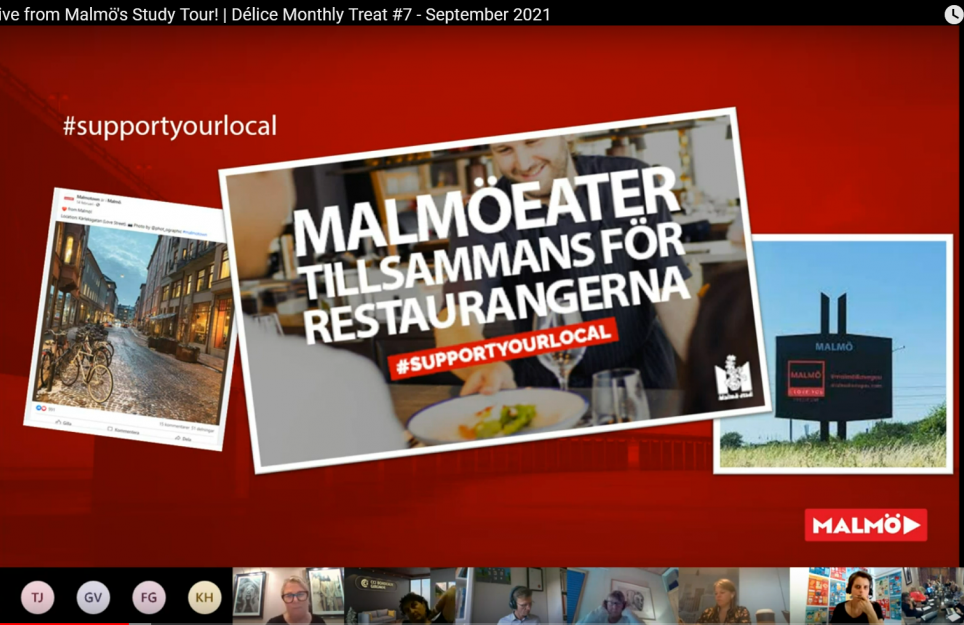
In September 2021, a lucky few will be attending an exceptional Study Tour proposed by the City of Malmö to the Délice Network Partners: 48h to understand the approach of the Swedish city on Social Gastronomy.
During this Monthly Treat, Délice members joined virtually the study tour for a special session dedicated to the current state of Tourism activities. Karin TINGSTEDT, Hospitality Project Manager for Malmö, presented some of the city's recovery measures for the local hospitality sector always with a sustainable & social approach.
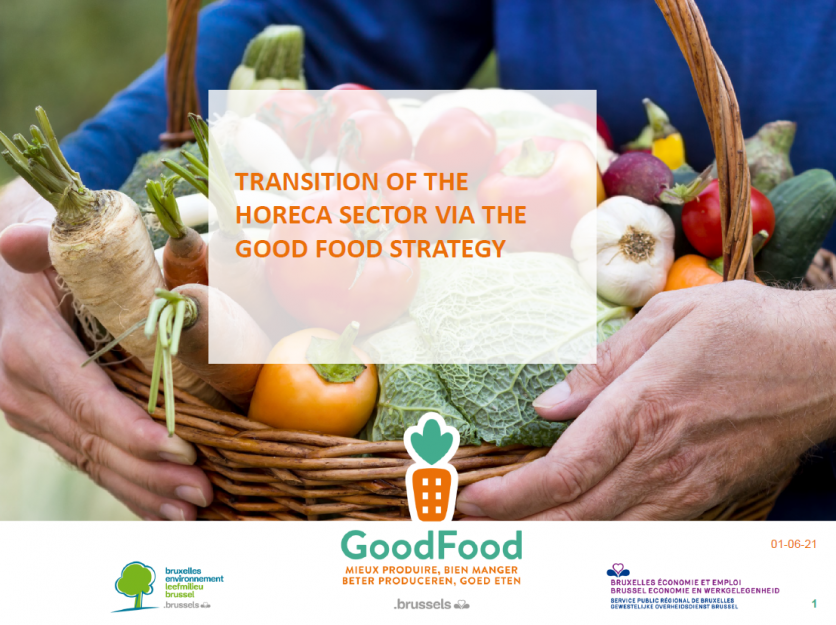
The issue of food and its sustainability has become a significant challenge on a global level as much as on a local level. The Brussels-Capital Region is no exception, with its confined territory, 1,175,000 inhabitants, and more than 330,000 commuters that need to be fed under good conditions.
The Good Food Strategy "Towards a sustainable food system" in the Brussels-Capital Region aims to place the question of food at the heart of the Brussels urban dynamic as an economic, social, and environmental challenge while preserving our common heritage: pleasure and good food.
Joséphine HENRION, Head of Food and Consumption Unit at Brussels Environment, presented to the Délice Members the Good Food Strategy, its assessment, and progress in cocreating the Good Food 2.0 Strategy.

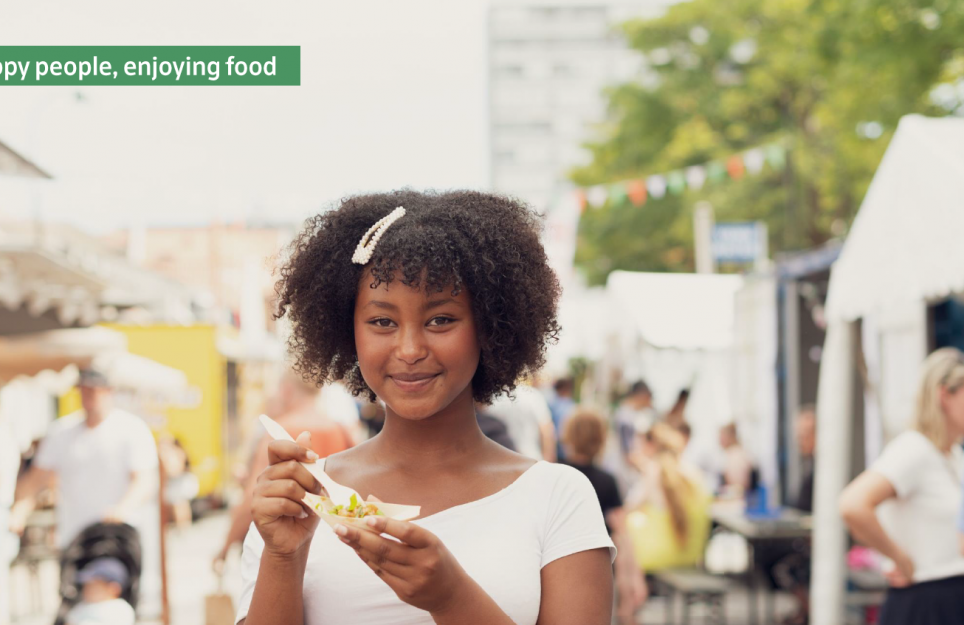
Gladmat, or the "happy food" festival held annually in July, is four days of fun for foodies, usually drawing around 250,000 visitors to the Stavanger's harbor. Despite the pandemic, Gladmat has succeeded in adapting its program in 2020. A new activity was launched to ensure that local restaurants are part of the festival: the Gladmat Food trails, which took participants on a guided visit from restaurant to restaurant.
Maren SKJELDE, Gladmat General Manager, will return to a year of uncertainty and adaptation in running a food festival and explain lessons learned from the successful initiative.
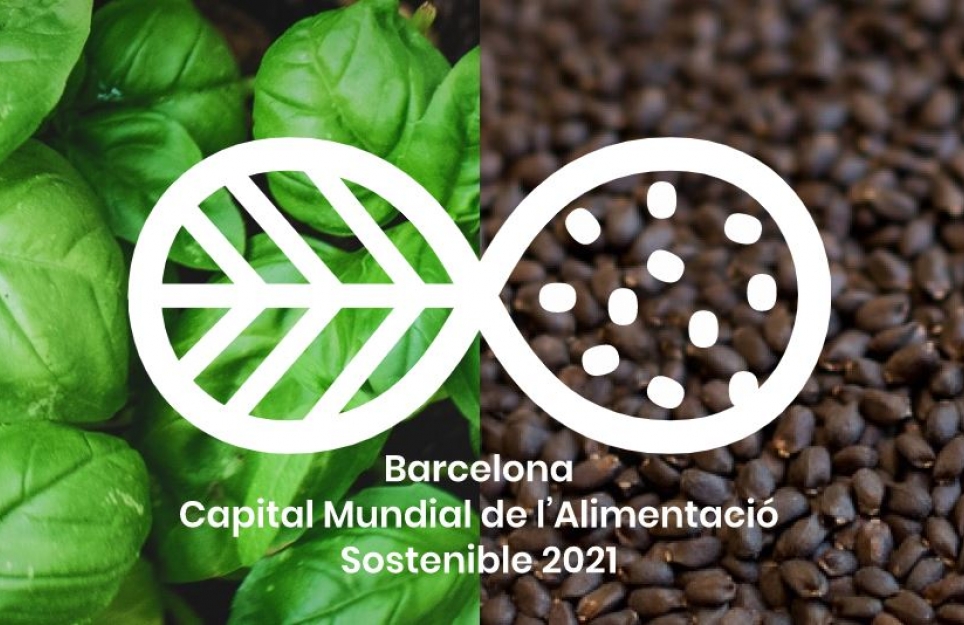
Barcelona’s year as the World Sustainable Food Capital has involved more than ninety sustainable food projects and policies and a schedule that will stretch from the start of the year until late December. It culminated with the presentation of the Food Strategy 2030, written up over the year and will act as a road map for urban food policies in the coming years.
How has Barcelona’s year as the World Sustainable Food Capital been a catalyst for a food transition towards sustainability that strengthens local economies and improves the health of both people and the planet?
Speakers:
- Mrs. Montserrat Ballarín, Councilor for Commerce, Markets, Consumption, International Regulations, and Tax - Barcelona
- Mr. David Gratacós, Economics Technician in the Direction of Trade, Restaurants and Consumption Services - Barcelona

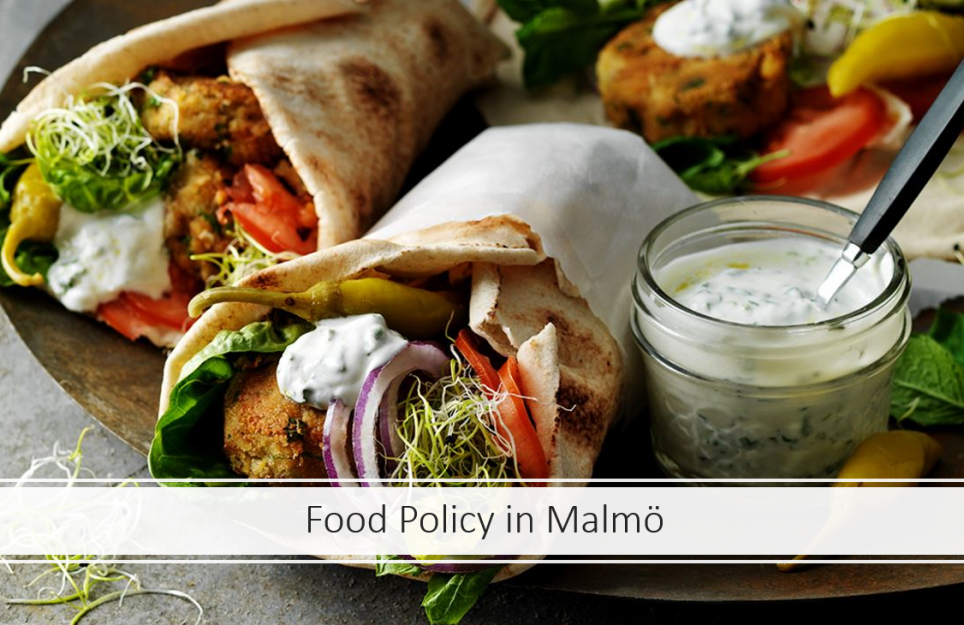
Malmö, Sweden's third-largest city, is a bit of a rebel on the food scene. Here, vegan is the new black, and local food entrepreneurs are always pushing the sustainability envelope, which means that a meal eaten in Malmö is likely to be just as satisfying for the planet as for the diner. Malmö is also at the forefront of social gastronomy, using food to promote community integration and create jobs.
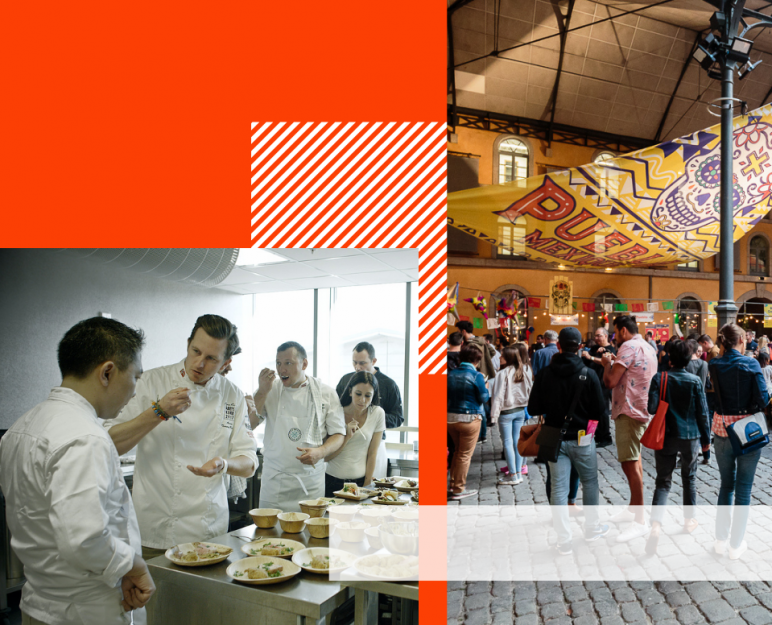
2021 was just around the corner and is looking to be a very strategic year for our organization. Following the strategic orientations presented during the AGM, members joined to get to know Camille CHAUMERON-JOURDAN, the temporary Délice Manager, and learn more about EU funded project and the 2021 solidarity fund.

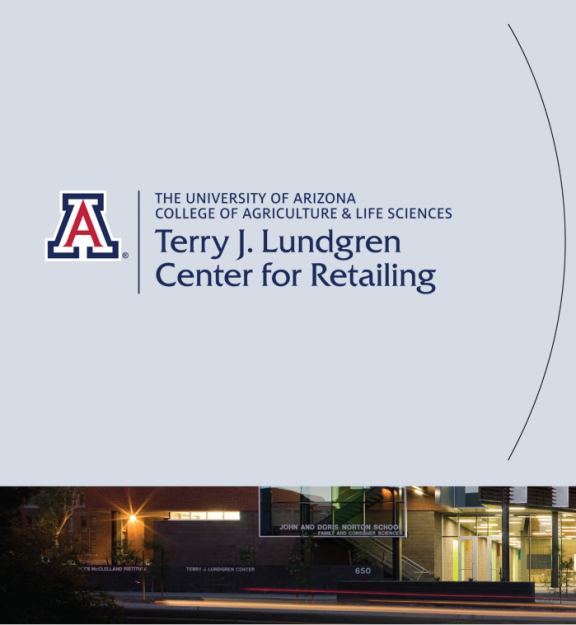
The food entrepreneurs in our food cities need to reinvent themselves as the industry is shifting. How can we, as cities, support them and help them sustain themselves? Proper training may be the trick! Felipe GARCIA from VisitTucson presented a project proposal with Scott HESSELL from the Center for Retailing of the University of Arizona, setting up interactive and peer-to-peer training modules for the Délice partners.